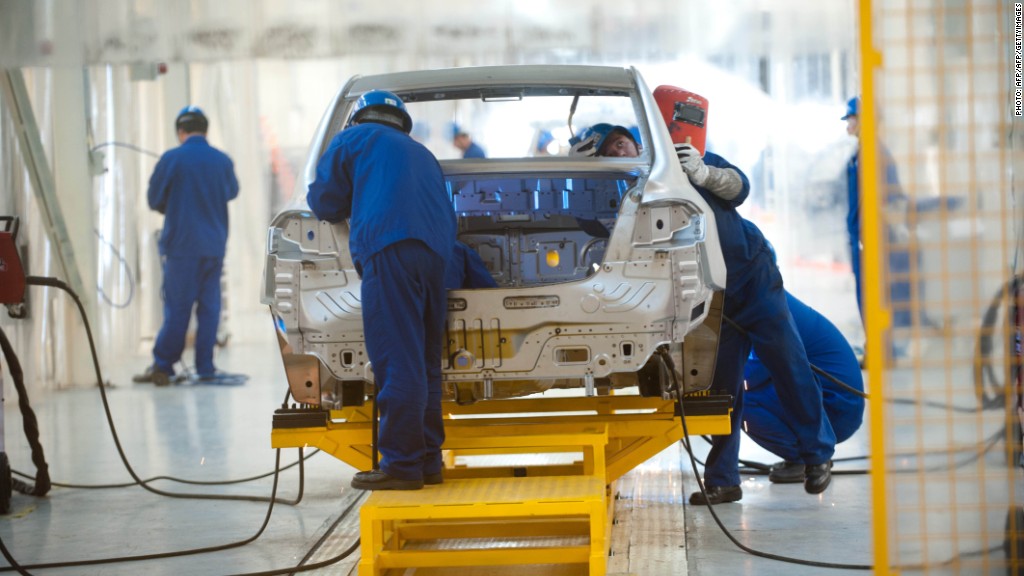
After a long period of steady progress and faster growth, China's factories have lost some momentum in the final months of the year.
HSBC said on Monday that its "flash" measure of sentiment among manufacturing purchasing managers fell to 50.5 in December, a three-month low.
The index is an early gauge of the health of the sector, which is seen as a bellwether for China's export-heavy economy. Any number above 50 indicates an expansion in manufacturing activity.
HSBC's China economist Hongbin Qu said that while the index has dropped from last month's final reading, 50.5 still remains above average for the third quarter. "[T]he recovering trend of the manufacturing sector starting from July still holds up," he said.
Related story: Europe's golden visas lure rich Chinese
Other analysts said that sluggishness in the manufacturing sector suggests economic growth has started to weaken, a trend that will continue into next year.
"We believe this trend will continue in first half of 2014, as market interest rates keep rising and pushing up financing costs for corporates," said Zhiwei Zhang, an economist at Nomura.
Beijing is likely to closely monitor the manufacturing sector for any continued signs of weakness, which could complicate reform efforts.

China's party leaders have spent much of the year plotting a course for economic reform that aims to deliver results by 2020.
Beijing's plan calls for opening its financial markets and promoting greater foreign investment. The leadership also hinted at changes in how companies file for stock market listings, the introduction of a bank deposit insurance scheme and an acceleration of interest rate liberalization.
The roadmap seeks to roll back government control of state-owned enterprises and allow for greater competition with private firms.
Related story: Asia stumble a major risk for global economy
Still, some questions remain, especially on looming issues including a rise in local government debt.
In addition, the country's consensus-driven approach to policymaking could make for slow progress in translating the roadmap into real change for private companies, consumers and foreign investors.


